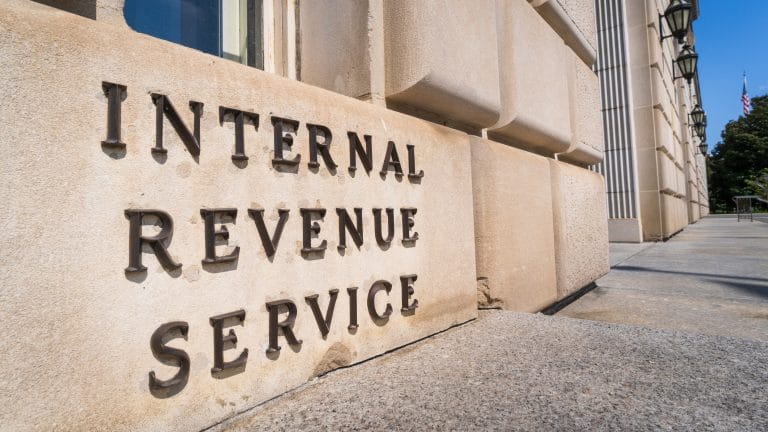🎧 Listen to This Article
This Isn’t Just About a Missed Deadline It’s a Warning Shot
Millions of Americans treat April 15th as a soft suggestion rather than a hard deadline every spring. But this year, the IRS’s post-deadline messaging sounds more like a yellow card before a red. Why the shift?
The IRS isn’t merely nudging forgetful taxpayers. It’s recalibrating its enforcement posture subtly but unmistakably. And that has strategic implications for individuals, tax professionals, and CFOs of closely held businesses.
In a post-pandemic world of tightened federal budgets, expanded IRS funding (however contested), and AI-powered compliance tools, non-filing is no longer low-risk. The agency’s advice to “file promptly to minimize interest and penalties” isn’t just prudent. It’s part of a larger effort to reassert the tax system’s authority.
So what’s really at stake for the late filer? More than just a few percentage points.
The Hidden Risks: More Than a Penalty Ticker
On the surface, the math is simple:
- Failure-to-file penalty: 5% of unpaid taxes per month (max 25%)
- Failure-to-pay penalty: 0.5% monthly (max 25%)
- Interest: Compounded daily currently 8%+ APR
But these financial penalties are just the beginning. The reputational and psychological costs are rising:
- Increased audit risk for repeat late filers
- Restricted access to loans or public benefits tied to tax compliance
- Stress and uncertainty, particularly for gig workers or self-employed filers who juggle 1099s without corporate infrastructure
For many lower- and middle-income filers, the emotional calculus of fear, shame, and confusion often outweighs the financial penalty. That’s where the IRS’s new tone is most revealing: part deterrence, part empathetic reminder.
And this isn’t isolated to the US.
A Global Compliance Crackdown Is Brewing
From Canada’s CRA to HMRC in the UK, tax authorities worldwide are modernizing enforcement. The common thread?
Non-compliance ≠ ignorance anymore. Governments assume you can comply and penalize you more harshly if you don’t.
In France, for example, late filing triggers automatic penalties even if no tax is owed, similar to the US rule. Germany’s tax system adds late-payment surcharges without requiring intent.
The OECD’s push for digital tax administration (like SAF-T or e-invoicing) is designed to make lateness harder to hide and excuse.
So when the IRS emphasizes prompt filing, it’s echoing a broader policy trend: file first, fix later. Paperwork delays, not bad math, are what regulators will increasingly penalize.
Strategic Advice: What Smart Taxpayers and Advisors Should Do Now
- File Even If You Can’t Pay
The failure-to-file penalty is ten times higher than the failure-to-pay penalty. Filing buys goodwill — and keeps you in the system. - Use IRS Payment Plans as an Offensive Tool
Installment agreements don’t just spread the burden; they also pause aggressive collections. Use them early. - Proactively Communicate With Clients or Employees
For CPAs and HR professionals: remind stakeholders that prompt action today prevents compounding costs tomorrow. Consider offering pre-summer tax clinics or helplines. - Watch for AI-Driven Notices
The IRS is already piloting AI tools to detect under-reporting. Filing late increases the likelihood of misalignments and automated scrutiny. - Prepare for State-Level Follow-Ons
Many US states mimic or exceed federal penalties. Late federal filing can trigger cascading state-level enforcement.
Why It Feels Different This Year
The IRS’s current campaign is tinged with something new: urgency without overt threat.
This may be the last cycle before the agency’s much-hyped tech upgrades (funded under the Inflation Reduction Act) go live in earnest. And when they do, non-filers will stand out like a red flag in a spreadsheet.
There’s a human story here, too. Many who missed the deadline didn’t do so maliciously. Life got in the way: illness, gig work chaos, and caregiving. But in a digital-first tax world, that won’t matter much longer.
The rules are hardening. The systems are watching. And late filing may soon signal willful negligence, not simple forgetfulness.
What to Watch
- IRS technology rollout (2025–2026): Will new AI tools flag non-filers more aggressively?
- Congressional oversight on enforcement fairness: Will penalties disproportionately impact low-income filers?
- State-level penalty escalation: Will more states mimic or increase late-filing sanctions?
- Taxpayer education campaigns: Will the IRS invest in proactive outreach, or rely on punitive enforcement?
- International harmonization of late-filing rules: Will OECD nations align more closely on deadlines and penalties?
For further details, clarification, contributions, or any concerns regarding this article, please get in touch with us at editorial@tax.news. We value your feedback and are committed to providing accurate and timely information. Please note that our privacy policy will handle all inquiries.



